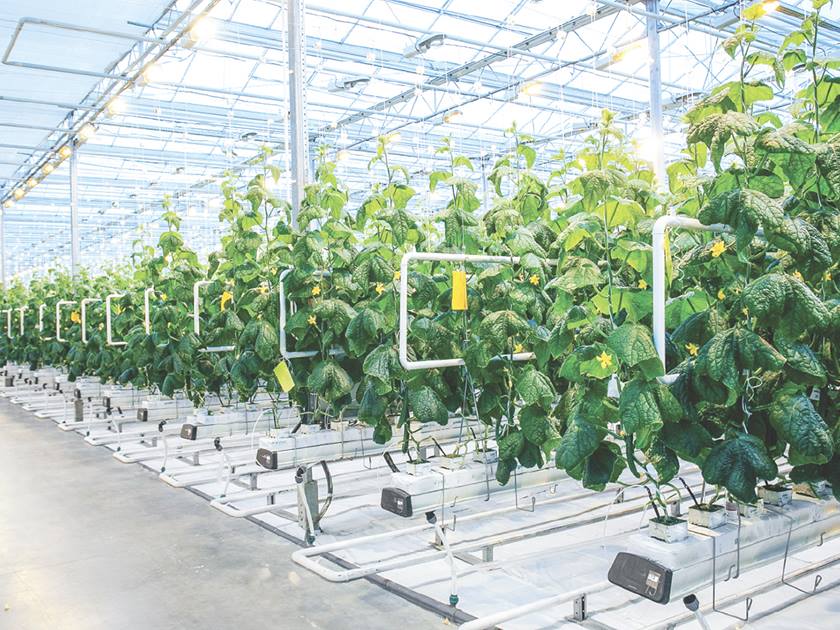IPA Qatar: Qatar Leads the Way in MENA's Agritech Revolution

Doha, March 18 (QNA) - Food security is part of a global quest for increased productivity, reduced waste and sustainable production practices. The consequences of climate change, disruptions in supply chains, and changes in land usage and agricultural outputs have deepened the need for innovative techniques and solutions.
Accelerated by private investments and tech development as part of the Fourth Industrial Revolution (Industry 4.0), Agritech has gained immense momentum. It is expected to reach USD54.2 billion market size in 2030, growing from USD11.1 billion in 2021. Countries with rapidly increasing populations such as China, India, Indonesia, Japan, the Philippines and Vietnam are investing heavily in Agritech, and attracting foreign direct investment (FDI) to equip their agricultural and food production sectors and to meet demands for higher crop yields. The numbers show that global Agritech venture capital investment increased by nearly 46 percent in 2020 and a further 61.4 percent in 2021 to USD 11.3 billion, representing a peak in investment and a major jump from the USD 600 million back in 2012.
On the growing promise of the Agritech industry, the Middle East and North Africa (MENA) region witnessed the signing of 33 investment deals in Agritech startups, amounting to USD250mn in disclosed investments from 2014 to 2020. A recent Agritech sectoral study by the Investment Promotion Agency Qatar (IPA Qatar) details how the region's rapid investment in technology and digitalisation has driven the industry forward.
Tech-based agricultural practices overhauling the MENA region's agri-food sector investments: IoT connections: Expected to more than double by 2025, with licensed cellular IoT connections expected to reach more than 70 million; Water efficiency & reuse technologies: 70 percent of global total usage of tech like hydroponic farming, drip irrigation and desalination plants used in MENA's agriculture sector; Controlled Environment Agriculture (CEA): 70 percent of fresh vegetables and fruits could be economically grown in the region using CEA; Vertical farming: Forecasted to grow rapidly from USD 1.1 billion regional market size in 2021 to USD 5 billion by 2029.
Qatar is leading the charge with its National Food Security Strategy that aims for 70 percent self-sufficiency in 2023, on top of significant investments in farming technology and Geographic Information System (GIS), and next-generation AI in agricultural practices. The State secured first place among all GCC nations on the Global Food Security Index 2021 an annual ranking of food security in 113 countries across four key pillars: affordability, availability, quality and safety, and sustainability and adaptation.
Over 50 leading tech companies and R&D centres have already found a foothold in Qatar through partnerships with the Qatar Science & Technology Park (QSTP). In fact, QSTP's experimental hybrid lab, VFarms Lab, has launched the country's first agricultural farm without external water sources via a solar-powered atmospheric water generator that produces water from the air. Agritech powerhouse WadiWater signed an agreement with IPA Qatar to bring its humidity to potable water' tech to the country, while Finland's iFarm is working with Agrico Farm to build an AI-managed vertical farm in Doha.
As investors seek to capitalise on the tremendous growth potential in the Middle East's Agritech sector, which is projected to reach USD170 billion in worth by 2025, Qatar's commitment to environmental stewardship, along with its strategic location and world-class tech infrastructure make it an attractive destination for investment. With an annual growth rate (CAGR) of 15.2 percent in domestic food production, Qatar outperformed the GCC regional CARG of 4.3 percent between 2014 and 2019. It recorded an impressive 400 percent uptick in domestic food production between 2017 and 2019 alone, achieving 100 percent self-sufficiency in poultry production and 109 percent in dairy production in 2019. By comparison, in 2017, Qatar had relied on imports for 72 percent of its supplies.
Backed by extensive international investment agreements, financial support for SMEs and venture capital, and direct access to Hamad Port, one of the largest green ports in the world, Qatar's Agritech sector is set to play a crucial role in securing food supply and pushing for lasting economic diversification. (QNA)





